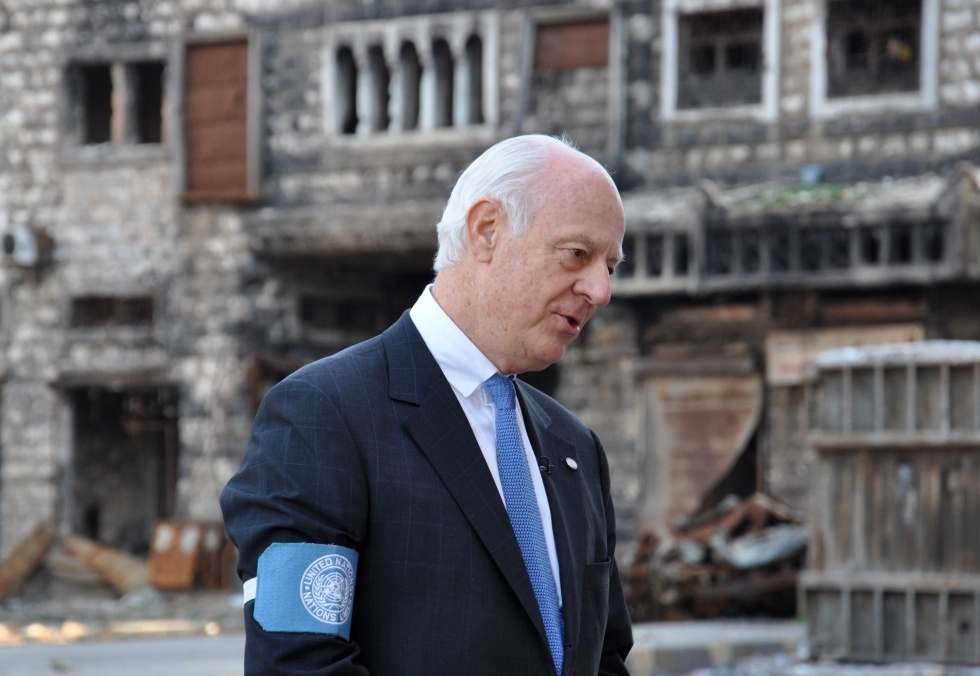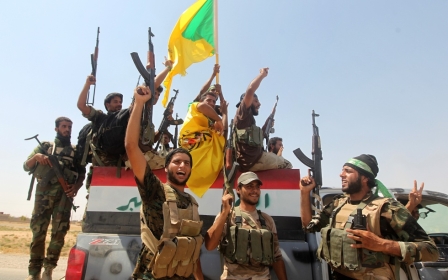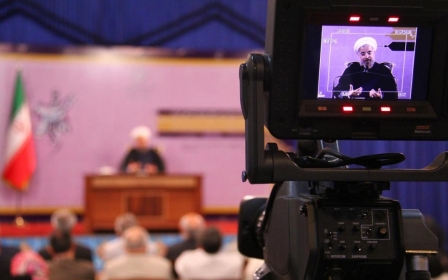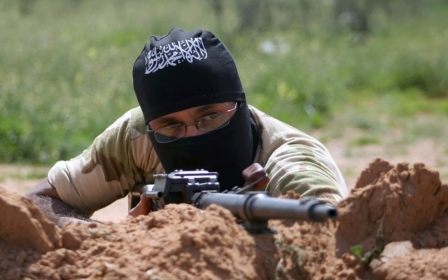UN envoy's 'freeze' plan for Syria will quickly melt

This month, the UN's envoy for Syria, Staffan de Mistura, unveiled his proposal for conflict zones in the country to be "frozen locally." The immediate aim is to provide humanitarian relief to those localities, and beyond that, to focus government and opposition efforts on fighting the Islamic State (IS), and to enable conditions for a political process that could end Syria's civil war.
While the proposal would provide humanitarian relief, it has so far been poorly planned, its longer-term goals are unrealistic, and some of Mistura's accompanying statements are fundamentally misguided.
For starters, the idea of local truces is nothing new. They have been taking place for some time, but without any progress toward a political settlement, because they are largely based on strategic military considerations.
There is no reason to believe Mistura's plan would bring about a change in such thinking, so these "freezes" could be used by either side to consolidate the territories they already hold, or to regroup and rearm for further fighting. Such a scenario would be of much greater benefit to the regime, as it receives far more foreign military support than rebel forces.
Little wonder, then, that Syrian President, Bashar al-Assad has expressed his willingness to study Mistura's plan, while the opposition Free Syrian Army has rejected it. "We learned not to trust the Assad regime because they are cunning and only want to buy time," said Zaher al-Saket, Free Syrian Army (FSA) military commander in Aleppo.
This is a major blow to Mistura, given that he wanted Aleppo to be the first "freeze zone." If the FSA rejects the plan, it is highly likely that other rebel forces will follow suit, if they even bother to respond. Assad could well view the proposal as a means to buy time, waiting for IS to be weakened or defeated before his forces renew and refocus their fight against other groups.
Numerous forces
Mistura's statements suggest that besides IS, there are two clear sides in the conflict - the regime and the opposition. This does not reflect the reality on the ground. The government relies heavily on foreign and domestic militias, over which it does not - or cannot - exercise complete control.
On the other side are numerous rebel groups with differing ideologies, some fighting each other. There are divisions and mistrust between the exiled and armed opposition, and even within individual groups.
These myriad forces often exist within the same locality. So, for a truce to hold, it needs agreement from all those on the ground, not just some. This prospect is increasingly difficult as the conflict has become ever-more fractured.
A degree of trust is also required which, if it ever existed, has been greatly undermined by what a UN report in August identified as "mass arrests of men of fighting age" by the regime following truces, "many of whom disappear."
Mistura said last week that if a "freeze" works in one place, "we can replicate it elsewhere." However, this wrongly assumes that conditions are the same throughout the conflict zones in Syria. More, by his own thinking, if success in one place can create a domino effect, so can failure. Mistura’s predecessors, Kofi Annan and Lakhdar Brahimi, who failed to maintain ceasefires when the war was not as protracted or entrenched, can attest to that. Mistura says he is "talking about something different" than a ceasefire, but that is exactly what a freeze in fighting is.
Process over peace
In favouring an incremental approach, Mistura need only look at the Israeli-Palestinian peace process to see the folly of such a strategy. This gives the various warring parties (or individual actors) ample opportunity to sabotage the entire process.
It allows the side that is stronger (or believes it is) to indefinitely postpone a final settlement to avoid making meaningful concessions - all process and no peace, as the Palestinians have experienced for more than two decades. Furthermore, the regime's conditions on who it is willing to negotiate with pretty much rules out any of its genuine opponents, and those that have influence on the ground.
Even if Mistura's plan somehow progressed to the point of discussing an overall settlement, it would come to an abrupt halt with a déjà vu of the Geneva conferences, in which there was no common ground between the regime and the opposition. The former refuses to consider a transition of power (as called for by the Geneva communique, which Mistura says is still valid), while the latter will not negotiate without one.
In trying to get his plan off the ground, he seems to have liaised almost exclusively with the regime and its allies. He says he has had "many" meetings with government officials - including Assad and his foreign minister - as well as with the regime's primary allies, Russia and Iran.
However, news reports suggest that Mistura has only met with the regime-tolerated opposition in Syria, which is shunned by other opposition groups, and does not represent any of those involved in the fighting or those in exile. As such, they will distrust the proposal from the outset.
Problem misdiagnosis
Mistura hopes that his plan will bolster the fight against IS, but his rationale is fundamentally skewed. He describes the jihadist group as a "game-changer" and a "horrific, horrible trigger," and says "the focus... should be on" IS. As if a death toll exceeding 200,000, the displacement of half of Syria's entire population, and other grim milestones have not been game-changers.
The country was in ruins before IS became a dominant force, and despite its undeniable barbarity, the UN - Mistura's employer - has made clear that the government holds primary responsibility for this, in addition to the countless human rights reports documenting regime war crimes and crimes against humanity.
"The Syrian government remains responsible for the majority of the civilian casualties, killing and maiming scores of civilians daily, both from a distance using shelling and aerial bombardment and up close, at its checkpoints and in its interrogation rooms," Paulo Sergio Pinheiro, the head of the UN commission investigating war crimes in Syria, said in September.
In April, UN human rights chief, Navi Pillay said government atrocities "far outweigh" those of the opposition, and the regime is "mostly responsible" for human rights violations. Both sides' abuses should be documented and brought to the International Criminal Court, "but you cannot compare the two," she added.
As such, Mistura is woefully mistaken to think that defeating IS, while necessary, is the key to resolving the Syrian conflict. One cannot fix a problem with a misdiagnosis, and turning a blind eye to the regime's central culpability is not just that, but reveals a grave misunderstanding of a conflict that he is tasked with ending.
His misunderstanding is not limited to this aspect. Asked if US-led airstrikes would exacerbate the situation on the ground, he replied: "On the contrary." Just two days later, the International Committee of the Red Cross said the airstrikes had worsened the humanitarian crisis. Furthermore, as countries worldwide ramp up efforts to stop fighters going to Syria, Mistura has called on Turkey to let Kurdish fighters in.
The naiveté of his proposal means that it will be still-born. More widely, however, it calls into question his suitability for the role of UN envoy, and does not raise any hope that he will succeed where his predecessors failed.
- Sharif Nashashibi is an award-winning journalist and analyst on Arab affairs. He is a regular contributor to Al Arabiya News, Al Jazeera English, The National, and The Middle East magazine. In 2008, he received an award from the International Media Council "for both facilitating and producing consistently balanced reporting" on the Middle East.
The views expressed in this article belong to the author and do not necessarily reflect the editorial policy of Middle East Eye.
Photo: Italian United Nations envoy on the Syrian crisis Staffan de Mistura stands during a visit to the Syrian city of Homs on 10 November, 2014 (AFP)
New MEE newsletter: Jerusalem Dispatch
Sign up to get the latest insights and analysis on Israel-Palestine, alongside Turkey Unpacked and other MEE newsletters
Middle East Eye delivers independent and unrivalled coverage and analysis of the Middle East, North Africa and beyond. To learn more about republishing this content and the associated fees, please fill out this form. More about MEE can be found here.





